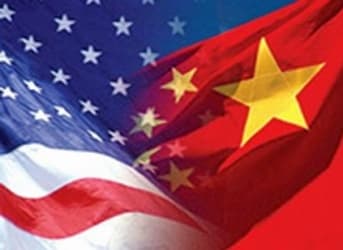To hear Carlos Pascual, the U.S. State Department’s special envoy on international energy tell it, “The United States values Canada as its most important energy partner. There has never been a doubt about that. It is true now and it will continue to be true in the future.”
A year ago at the Gas & Oil Expo and Conference North America 2011 the U.S. Ambassador to Canada, David Jacobson, told his audience, “The United States and Canada have the closest energy relationship in the world. And the U.S. sees Canada as a pillar of our energy security. We will continue to work closely with Canada to address environmental concerns while securing reliable energy supply for the North American continent - something to which Canada - and specifically Alberta - contributes mightily.”
Pascual is correct, though the observation about Canada’s future primacy may prove in time to be wrong. Canada maintains a surplus in all marketable energy commodities, exporting crude oil, natural gas, coal and electricity and is currently the single largest foreign supplier of energy to the United States, providing 20 percent of U.S. oil imports and 18 percent of U.S. natural gas imports. Recognition of the commercial potential of Alberta’s tar oil sands deposits have raised Canada's proven petroleum reserves to 174 billion barrels, making it the world's third-largest holder of reserves after Venezuela and Saudi Arabia. Nor are hydrocarbons Canada’s sole energy exports to the U.S., as Canada and the United States operate an integrated electricity grid, which meets jointly developed reliability standards and provides for each other’s electricity imports and exports. Canada is a major supplier of electricity, primarily generated by renewable hydroelectric power to New England, New York, the Upper Midwest, the Pacific Northwest, and California and Canadian uranium from Saskatchewan helps fuel the United States’ 104 nuclear power plants (NPPs).
Canada’s energy reserves also have strategic implications for Washington, as Canada is the only non-OPEC member among the world’s top five holders of reserves. Of Canada’s 174 billion barrels of reserves 170 billion barrels, approximately 97 percent are unconventional, mainly from oil sands bitumen deposits. These unconventional deposits position Canada as one of the central sources of non-OPEC production growth in the coming decades.
U.S. companies are heavily involved in Canada’s energy sector, with the Canadian Association of Petroleum Producers compiling a list of over 900 American businesses providing goods and services.
The cloud on this otherwise sparkling horizon? Alberta’s tar oil sands, which Canada’s TransCanada Corp. want to send to U.S. refineries on its Gulf Coast via the controversial Keystone XL pipeline. Alberta alone now exports approximately 1.4 million barrels per day of crude oil to the U.S. supplying 15 percent of U.S. crude oil imports, or over 7 percent of U.S. oil demand. Environmentalists in both Canada and the U.S. are aghast over the production techniques and environmental impact of oil sands development, which have combined to derail attempts to build the Keystone XL pipeline for present.
Which has provided opportunities for others. As the U.S. Energy Information Agency diplomatically notes, “Asian countries are seeking greater access to Canada’s natural resources to fuel Asia’s own long-term economic growth.”
Accordingly, the roseate picture sketched out by Pascual and Jacobsen may be about to undergo significant change. PetroChina Co. Ltd. has expressed interest in building Enbridge Inc.’s Northern Gateway pipeline, a proposed westwards-running alternative conduit to Keystone XL to ship Alberta’s oil sands to Canada’s Pacific coast and then onwards to China, while a Chinese company has proposed to provide finance, design and build an oil refinery in Alberta.
Canada’s Minister of Natural Resources Joe Oliver acknowledged this shift in priorities in a speech he gave two months ago at the Macdonald-Laurier Institute conference, “Moving Canada Ahead: Fuelling Prosperity and Sustainability in our Transport System,” in Toronto, when he said, “We have to recognize the global economic balance is shifting and we must adapt to these changes. I was in China with the Prime Minister last month, and I can tell you there’s an immense demand there for the kinds of natural resources we have in abundance. My visit with the Prime Minister was my second in four months, and I expect I’ll be back talking about Canada’s resources.”
The most striking international event of the last two decades has been China’s seemingly inexorable rise to global prominence, which has been fueled by the dramatic restructuring of its economy to become the world’s workshop for capitalist consumers, largely at the expense of U.S. production. While Pascual’s observations remain valid for the foreseeable future, Canadian politicians from Prime Minister Stephen Harper to Oliver have remarked on China’s new prominence in Canada’s energy sector. If Washington wishes to retain its prominence there, then it must take note of this uncomfortable new reality and adjust its policies accordingly.
ADVERTISEMENT
By. John C.K. Daly of Oilprice.com


















